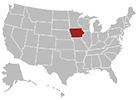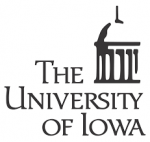
Recovery coaches work directly with patients who suffer from substance abuse disorders.
For those living in Iowa, 6.38% reported using illicit drugs within the past month, compared to a national average of 8.82%.
While most use drugs recreationally, this usage can become an uncontrollable addiction, which is where a recovery coach comes into play.
Most Iowa recovery coaches have surpassed substance abuse disorders so that they can relate to their patients.
For those looking to help others and enter a field with plenty of patient interaction, keep reading to learn more about this career choice!
Page Navigation
Steps to Become a Professional Recovery Coach in Iowa
Like enter any other career, becoming a professional recovery coach in Iowa requires a few steps, which include the following:
Step One: Obtain a High School Diploma
While the state does not require a high school diploma to become a professional recovery coach, all professional training courses require this degree.
Also, students can only apply for training programs if they are at least 18 years old.
Step Two: Complete Professional Training Courses
Various schools offer training, which is required to earn Iowa certification.
The program must be Recovery Peer Coaching training or part of another Iowa Department of Public Health (IDPH)-approved offering.
Step Three: Acquire a Certification
In addition to completing professional training courses, the state also requires recovery coaches to gain work or volunteer at an organization that holds a contract with the IDPH.
Additional requirements include being covered under the organization’s liability insurance, being in recovery for 12 months or longer, and being willing to share personal experiences with other patients.
Step Four: Find a Permanent Position
Once all these obligations are fulfilled, recovery coaches can seek permanent employment with the organization they volunteer or work for.
Many continue into supervisory or administrative roles at different recovery organizations or move into other recovery roles.
Schools in Iowa
When searching for a training program, three primary institutions exist:
Georgia Model Training
The Georgia Model is based on the work of the founder of Georgia’s Peer Specialist Training and Certification program and the founder of the Georgia Mental Health Consumer Network, Larry Frick.
The model trains recovery coach candidates to help them effectively search for employment.
Since it is not considered continuing education, coaches must find other ways to meet the requirement.
The curriculum comprises basic communication skills, clinical supervision, DSM and the essential diagnoses, and emergency procedures.
Applicants must have been in recovery to apply, and a mental health instructor offers the program every other week.
Life Connections Peer Recovery Services
With a mission statement focusing on supporting those experiencing substance abuse addiction and mental health challenges, Life Connections trains future coaches to help others achieve their recovery goals and overcome situations before a crisis occurs.
The organization operates as a peer-run and peer-owned entity.
Coaches operate a peer respite facility and wellness recovery center, Rhonda’s House.
This gives potential coaches an excellent learning opportunity and experience toward certification.
The University of Iowa
Through its Peer Workforce Collaborative program, the University of Iowa provides training for peer recovery, family peer support specialists, and peer support specialists.
The training collaborates with the Child Healthy Special Clinics, Division of Child and Community Health, Life Connections Peer Recovery Services, the University of Iowa Department of Pediatrics, and the University of Iowa National Resource Center for Family-Centered Practice.
Recovery Coach Representative Schools in Iowa – Summary Table
Top 3 Schools in Iowa
| School Name | Address |
|---|---|
| Georgia Model Training | |
| Life Connections Peer Recovery Services | 916 11th St, DeWitt, IA 52742, United States |
| The University of Iowa | Iowa City, IA 52242, United States |
Salary
The median annual U.S. recovery coach salary is $34,300, with pay ranging from $30,800 to $38,400.
The median yearly income in Iowa is $32,800, while the pay ranges from $29,400 to $36,700.
Annual Salary Range:Average Salary of Professional Recovery Coachs in Iowa
| City Name | Salary |
|---|---|
| Des Moines | $33,160 |
| Cedar Rapids | $32,854 |
| Davenport | $32,588 |
| Sioux City | $29,808 |
| Waterloo | $31,223 |
| Iowa City | $32,586 |
| Council Bluffs | $32,464 |
| Dubuque | $32,412 |
| Ames | $32,851 |
| West Des Moine | $33,160 |
Regional Salary in Iowa
| Region | Employed | Avg. Annual Salary | Avg. Hourly Pay | Top 10% Annual Salary | Bottom 10% Annual Salary |
|---|---|---|---|---|---|
| Ames, IA | 130 | $40,970 | - NA - | $78,320 | $18,250 |
| Cedar Rapids, IA | 410 | $52,260 | - NA - | $93,950 | $17,790 |
| Davenport-Moline-Rock Island, IA-IL | 310 | $53,180 | - NA - | $100,320 | $17,870 |
| Des Moines-West Des Moines, IA | 860 | $43,050 | - NA - | $80,270 | $15,080 |
| Dubuque, IA | 270 | $49,120 | - NA - | $79,920 | $17,980 |
| Iowa City, IA | 220 | $123,410 | - NA - | $231,650 | $18,450 |
| Sioux City, IA-NE-SD | 170 | $45,770 | - NA - | $79,000 | $18,900 |
| Waterloo-Cedar Falls, IA | 300 | $56,910 | - NA - | $102,400 | $16,510 |
* Employment conditions in your area may vary.
Frequently Asked Questions
What are some benefits of becoming a recovery coach in Iowa?
Recovery coaches provide insight into the best techniques to address substance abuse issues and how to prioritize recovery while meeting set goals.
This means developing the skills and tools necessary to help others in a customized and individualized environment while getting paid.
The greatest benefit is helping those who cannot help themselves and giving back to society.
What are the Iowa certification application requirements?
To apply as a recovery coach through the Iowa Board of Certifications (IBC), participants must fulfill the following requirements:
- Complete the application process.
- Provide proof of a high school diploma.
- Submit the training program certificate of completion from:
- Life Connections
- The Georgia Model training program
- The University of Iowa
- A comparable model approved by the IBC
- Have documentation of at least 500 hours as a practicum student, employee, or volunteer.
- Work 25 hours under direct supervision.
- Pass the IC&RC Peer Recovery examination.
Regardless of the training school, 46 hours of training must be specific to the four peer coaching categories:
Advocacy, Education/Mentoring, Ethical Responsibility, and Wellness/Recovery Support.
What topics are included in the IC&RC Peer Recovery Examination?
Once the training and 500 hours of service in the role are complete, including the 25 supervised hours, prospective coaches must also complete the examination.
The competency areas of the exam include the following:
- Advocacy
- Education
- Ethical responsibility
- Mentoring
- Recovery
- Wellness
Preparation for the exam can be conducted using various online study materials offered by the organization.
Attendees can contact the Iowa Board of Certification to determine an exam time and location.
Does Iowa require continuing education credits?
The state expects recovery coaches to be updated on the latest practices and techniques, so continuing education credits are required.
Coaches undergo recertification every two years, which involves:
- Twenty clock hours of educational credits, with six of 20 covering ethics.
- Additional hours must be in areas related to the position.
Furthermore, online education platforms can earn ten or less than 20 hours.
For those who take continuing education credits at the university level, a grade of C or higher must be earned.
One semester hour equals 15 block hours, so a three-hour course equals 45 continuing education hours.




